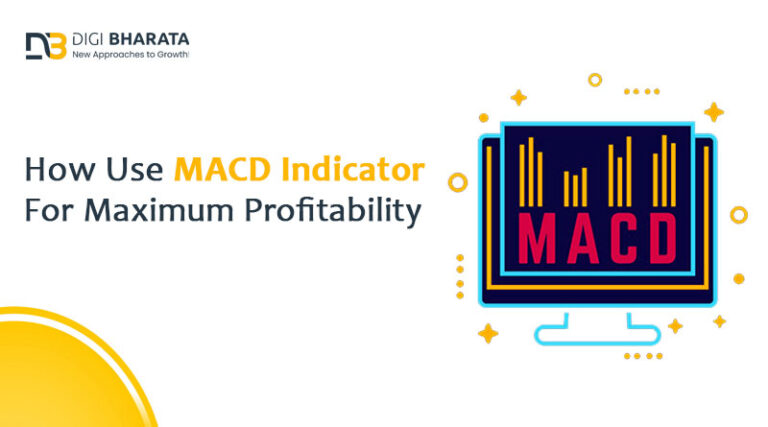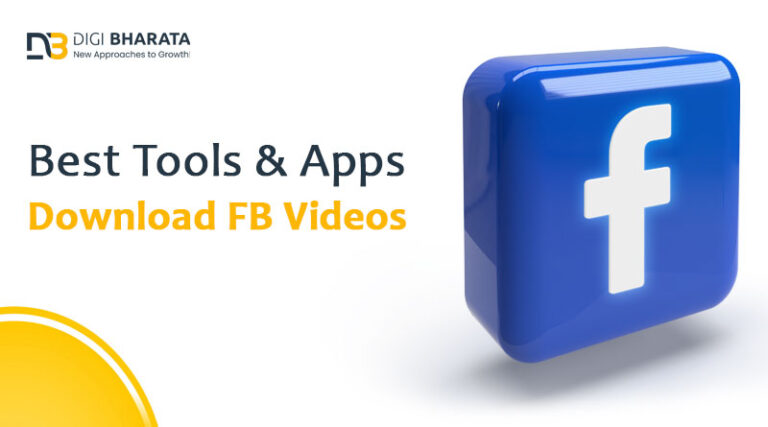The global mHealth app market is projected to reach $102.35 billion by 2026, with an increasing number of people turning to these apps for accessible and convenient healthcare solutions.
mHealth apps are mobile applications that focus on health and wellness. With the increasing popularity of smartphones and the advancements in technology, mHealth apps have emerged as a convenient and accessible way for individuals to manage their health.
These apps offer a wide range of services, from tracking fitness goals to providing virtual medical consultations.
In this article, we will examine the different types of mHealth apps, their features, benefits, and challenges.
Table of Contents
An Overview of Types of mHealth Apps
Discover the various types of mHealth apps available, catering to different health needs including;
Fitness and Wellness Apps
Fitness and wellness apps are designed to help users track and achieve their fitness and wellness goals. They typically offer features such as workout plans, calorie tracking, and health coaching. These apps can be a convenient tool for individuals looking to improve their physical health and overall well-being.
Also Check: Convenient Care
Mental Health Apps
Mental health apps are focused on providing tools and resources for managing mental health. This may include features such as stress management techniques, mood tracking, and therapy sessions. Mental health apps can be especially helpful for individuals who struggle with mental health conditions, or for those looking to maintain good mental health.
Chronic Disease Management Apps
Chronic disease management apps are designed to support individuals living with chronic conditions, such as diabetes or heart disease. These apps offer tools for tracking symptoms, managing medications and connecting with healthcare providers. Chronic disease management apps can help individuals manage their health and improve their quality of life.
Women’s Health Apps
Women’s health apps cater specifically to women’s health needs. These apps may offer features such as menstrual cycle tracking, pregnancy support, and breast health resources. Women’s health apps can provide women with the information and support they need to manage their health.
Medical Reference Apps
Medical reference apps provide access to medical information and resources. These may include medication guides, health encyclopedias, and drug interaction databases. Medical reference apps can be useful tools for individuals seeking reliable health information and resources.
Features of mHealth Apps
Experience the future of healthcare with the advanced and versatile features of mHealth apps. Get details below;
Also Check: Best Online Doctor Consultation Apps
Personalized Health Tracking
mHealth apps often offer personalized health tracking, allowing users to track and monitor their health metrics, such as weight, exercise, and sleep patterns. This can help users gain insights into their health and make informed decisions about their lifestyle and care.
Telemedicine Capabilities
Some mHealth apps provide telemedicine capabilities, allowing users to connect with healthcare providers remotely for virtual consultations and appointments. This can increase access to healthcare and reduce the need for in-person visits.
Integration With Wearable Devices
Many mHealth apps integrate with wearable devices, such as fitness trackers and smartwatches, to gather and analyze data about the user’s health. This can provide a more comprehensive view of the user’s health and wellness.
Secure And Private User Data Management
mHealth apps must ensure the privacy and security of user data, as health information is sensitive and personal. mHealth apps should use secure data storage and transfer methods, and be transparent about how user data is used.
Ability To Connect With Healthcare Providers
Some mHealth apps offer the ability to connect with healthcare providers, allowing users to communicate directly with their healthcare team and receive care and advice. This can improve the quality and coordination of care for users.
Also Check: Marketing for Doctors
Revolutionizing Healthcare: Best mHealth Apps of 2024
Explore the top mHealth apps of 2024 and discover new and innovative ways to track, manage and improve your health and wellness;
MyFitnessPal
This app offers a comprehensive approach to fitness and nutrition tracking, with features that allow users to log their food intake and exercise, set goals, and track progress. With a large database of foods and a barcode scanning feature, it makes it easy to track food intake, and the app also integrates with wearable fitness trackers to provide a complete picture of health and wellness.
Headspace
Headspace is a mental health and mindfulness app that provides guided meditations, sleep exercises, and mindfulness training. The app is designed to help users manage stress and improve mental well-being and features a variety of exercises that are suitable for all levels of experience.
Tide
Tide is a sleep and stress management app that provides personalized soundscapes and stress-reducing exercises to help users improve sleep quality and manage stress. The app features a variety of soundscapes, from natural sounds to white noise, and the exercises are designed to help users relax and manage stress.
Also Check: Acupuncture Practice Management Software
Qardio
This remote monitoring app for heart health allows users to track and monitor their heart rate, blood pressure, and other vital signs using wearable devices. With the ability to send data directly to a healthcare provider, Qardio makes it easy to monitor heart health and receive treatment if necessary.
Aaptiv
Aaptiv is an audio-based fitness app that provides guided audio workouts, meditation exercises, and mindfulness training. The app features a variety of workouts, from running and cycling to yoga and strength training, and the audio guidance makes it easy to follow along and stay motivated.
Heal
This app provides virtual doctor visits and medical services, allowing users to connect with licensed healthcare providers and receive treatment from the comfort of their own homes. With the ability to book appointments, chat with a doctor, and receive prescriptions, Heal makes it easy to access medical care when needed.
Glooko
This diabetes management app allows users to track their blood sugar levels, monitor medication, and receive personalized insights and recommendations to manage their diabetes better. With the ability to integrate with wearable devices and send data directly to a healthcare provider, Glooko makes it easy to monitor and manage diabetes.
Flo
This menstrual cycle tracking and women’s health app helps women track their menstrual cycle, predict ovulation, and manage their overall reproductive health. The app features a variety of tools, from a period calendar to a pregnancy calculator, and provides personalized insights and recommendations to help women manage their health.
Talkspace
This app provides users with access to licensed therapists, allowing them to receive mental health treatment from the comfort of their own homes. With the ability to chat with a therapist, receive support, and track progress, Talkspace makes it easy to receive mental health treatment when needed.
Practo
This medical reference and appointment booking app allow users to search for and book appointments with healthcare providers, as well as access information about medical conditions, treatments, and medications. With the ability to book appointments, view healthcare provider profiles, and access health information, Practo makes it easy to access the information and care needed to manage health.
Also Check: Fitness App Development Companies
Benefits of Using mHealth Apps
Embrace the power of technology and revolutionize your healthcare journey with the numerous benefits offered by mHealth apps Check it now;
Improved Self-Awareness and Management of Health
mHealth apps provide users with tools and resources to monitor and track their health metrics, such as weight, exercise, and sleep patterns. This increased self-awareness and understanding of health patterns can empower individuals to make informed decisions about their health and wellness and to proactively manage their health.
Convenient and Accessible Healthcare
mHealth apps can offer telemedicine capabilities and other tools for remote health management, making it easier for individuals to access healthcare services without needing in-person visits. This can increase access to care, especially for those living in rural or remote areas.
Reduced Healthcare Costs
By reducing the need for in-person appointments and increasing the efficiency of healthcare delivery, mHealth apps can help lower healthcare costs. Additionally, mHealth apps can help individuals manage and prevent health conditions, reducing the need for more expensive treatments.
Increased Engagement and Adherence to Treatment Plans
Regular tracking of symptoms and health metrics, as well as improved communication with healthcare providers, can enhance engagement and motivation for following treatment plans and meeting health goals. This can improve the quality and outcomes of care for users.
Challenges and Limitations of mHealth Apps
Despite their many benefits, it’s important to understand and address the challenges and limitations of mHealth apps to ensure their safe and effective use in healthcare. Find some below;
A. Data Privacy and Security: mHealth apps deal with sensitive and personal health information, making it crucial for these apps to ensure the privacy and security of user data. However, challenges such as hacking, data breaches, and unauthorized use of user data can pose risks to privacy and security.
Also Check: Software Development Companies Globally
B. Lack of Regulation and Standardization: The mHealth app industry is largely unregulated, with varying levels of quality and reliability among different apps. This lack of standardization can pose challenges for users trying to determine which apps are trustworthy and effective.
C. Inaccurate Information and Diagnosis: mHealth apps can provide a wealth of information and resources, but not all of this information may be accurate or relevant to an individual’s specific health needs. Additionally, some mHealth apps may offer self-diagnosis capabilities, but this can lead to incorrect diagnoses and potentially harmful treatment decisions.
D. Limited Integration With Traditional Healthcare Systems: mHealth apps may not always be fully integrated with traditional healthcare systems, such as electronic health records. This can limit the ability of healthcare providers to access and utilize mHealth app data in providing care, and can also limit the ability of mHealth applications to deliver comprehensive and coordinated care.
Conclusion
mHealth apps are increasingly being used for managing and tracking health and accessing healthcare services. With personalized tracking, telemedicine, and secure data management, mHealth applications provide numerous benefits, including improved self-awareness, convenience, reduced healthcare costs, and increased engagement in treatment plans.
However, challenges such as privacy and security, lack of regulation, inaccurate information, and limited integration with healthcare systems, must be addressed to fully realize the potential of mHealth apps in healthcare.
Also Check: Web Development Companies in Los Angeles
FAQs
Q: How do mHealth apps work?
Ans: mHealth apps work by leveraging the capabilities of mobile devices to provide users with personalized health tracking, telemedicine services, and information on health and wellness. Some mHealth apps also integrate with wearable devices to provide more comprehensive health data.
Q: Are mHealth apps secure and private?
Ans: The security and privacy of mHealth apps vary depending on the app. Users are advised to research the security and privacy policies of mHealth applications before using them and use secure passwords and protect their devices with a passcode or fingerprint.
Q: Can mHealth apps replace traditional healthcare?
Ans: While mHealth apps can be useful tools for managing and improving health, they cannot replace traditional healthcare. mHealth applications should be used in conjunction with traditional healthcare services and should not be relied on as the sole source of medical information or treatment.
Q: Can mHealth apps be used for medical diagnoses?
Ans: While mHealth apps can provide information on various health conditions, they should not be used for medical diagnoses. It is always best to consult a healthcare professional for an accurate diagnosis.





















+ There are no comments
Add yours